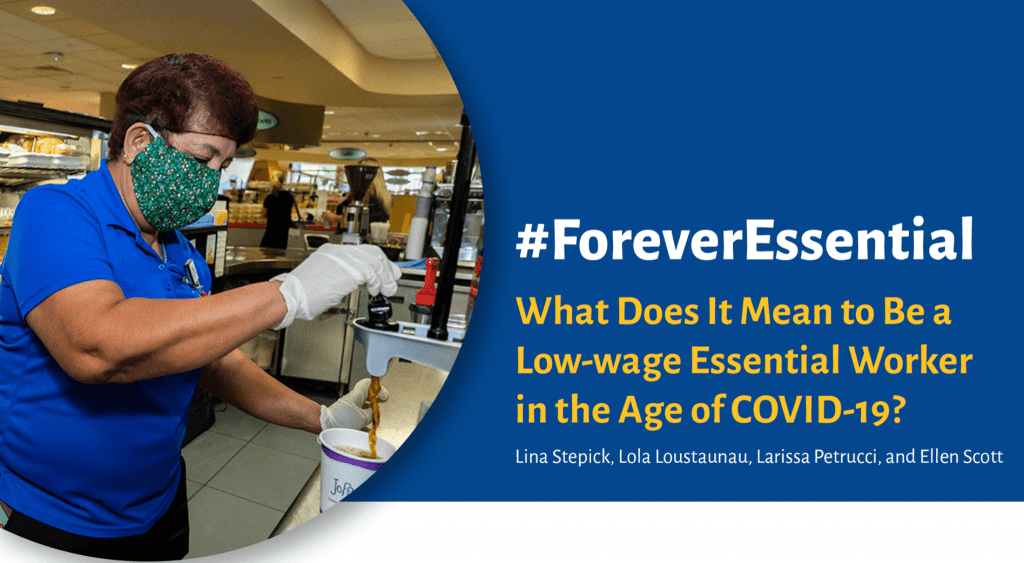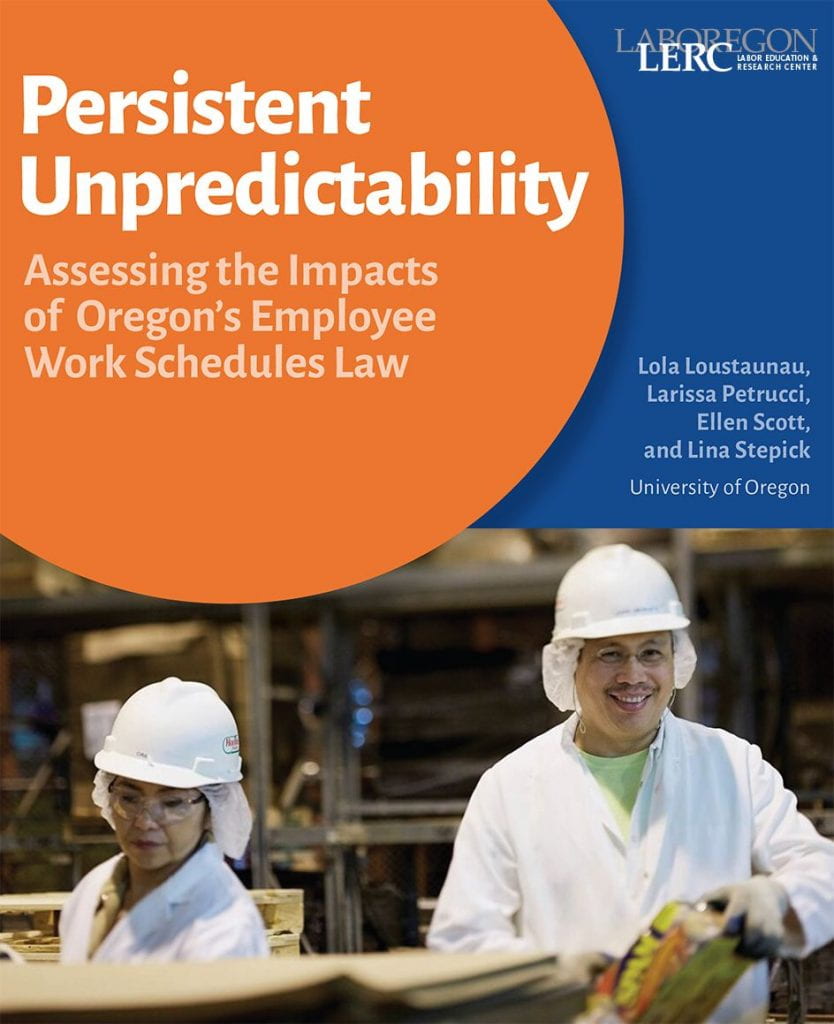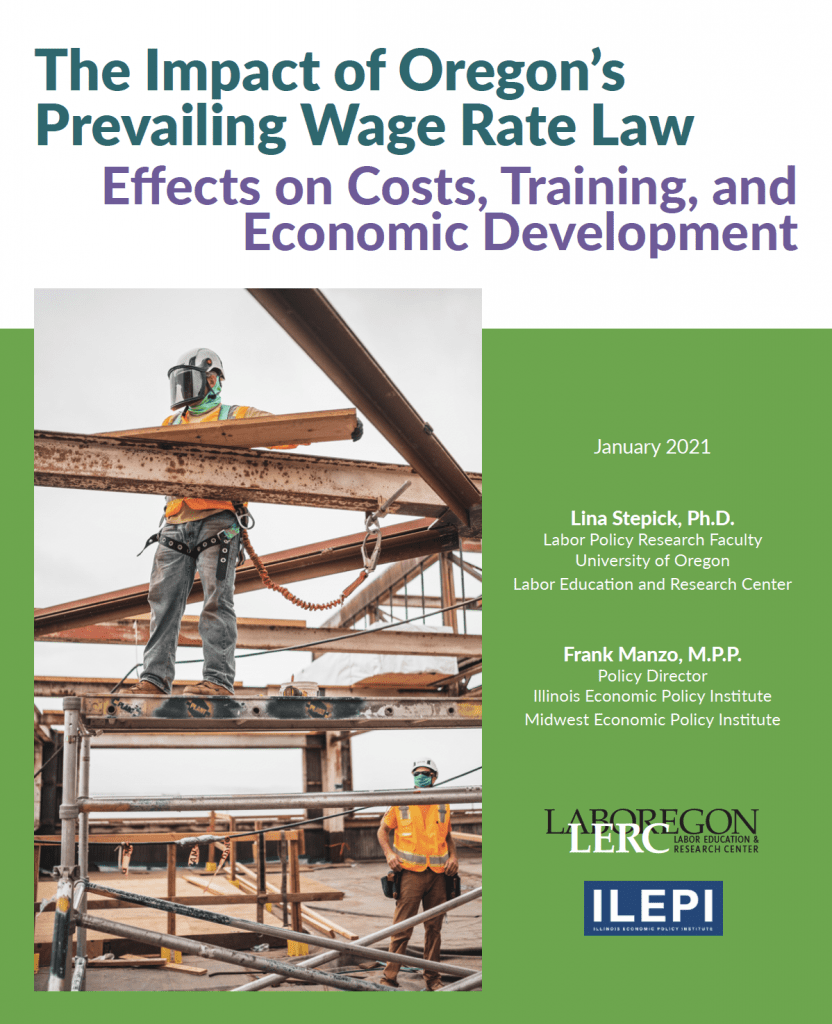Summary
Addressing the climate crisis is crucial work that must begin now, be bold, and include unions.
The Labor Education and Research Center’s Deborah Mailander and the University of Oregon’s Law School Environmental and Natural Resources Law Center have coauthored a white paper on recent policy proposals and successes that have the best hope of moving our country to sustainable energy whilst maintaining and even increasing high-wage jobs. Read the full report here.
A transition to a sustainable low-carbon economy will require a unity of purpose and action between our local, state, and federal governments as we reimagine how we operate our businesses, design and deliver government programs, construct our transportation and energy infrastructure and re-evaluate our lives as consumers. Such a monumental and necessary effort must include collaboration across environmental and labor organizations.
This report describes policies that encompass successful transition for the planet and workers and suggests mechanisms for win-win policies; provides an overview of current promising approaches, focusing on West Coast states; and gives recommendations for further research.
States are taking a variety of approaches to address climate change ranging from statewide renewable energy targets to “mini green deals” and climate action plans. To achieve the massive shifts that a carbon neutral transition requires, it is vital that environmental advocates, policy makers, and worker organizations collaborate on win-win solutions that are sustainable for the environment, communities, and the worker-based economy. Groups such as the Labor Network for Sustainability and the BlueGreen Alliance are working to connect labor organizations to climate action and to build bridges between environmental groups and labor union members. This strategy makes sense because workers and labor unions are more likely to endorse climate action if it has specific built-in provisions to create good family-wage jobs, allow for worker organizing, and provide training and transition support for workers in these emerging sectors.
States including California, Oregon, and New Mexico have made headway in bringing together stakeholders on win-win solutions to reduce carbon emissions, assist with transitioning workers impacted by the loss of oil and gas jobs, and establish strong labor standards in the creation of new job opportunities. Policies that include labor standards such as high-road jobs, prevailing wage and fringe benefits, and project labor agreements, and community benefits agreements have the best chance to attract broad worker support.
- High-road jobs provide family wages, benefits, career ladders, and job training opportunities. But the benefits go beyond the worker. Setting higher labor standards enables unionized workplaces to be competitive bidders on projects because they are not under-bid by employers that rely on contingent workforces or cut corners on safety and compliance with wage and hour laws.
- Prevailing wage agreements require that a project or program pay workers the prevailing wage and benefits for that industry and/or location. Prevailing wages are among the most well-established labor standards for providing adequate family wage jobs for publicly funded construction, transportation, and development projects.Prevailing wages measurably boost construction worker salaries, increase homeownership, and build wealth for the middle class.
- Project labor agreements set mutually binding procedures to resolve labor disputes, establish procedures for selecting subcontractors, negotiate guarantees against strikes and lockouts, and typically require employers to agree to use union labor, pay prevailing wages, and provide benefits.
- Community benefits agreements can engage community organizations, developers, labor unions, and local officials to craft customized plans with provisions for wages, working conditions, local hires, and transition of workers to newly created jobs.
One of the core concepts that combines climate action with sustainable and equitable job creation is the idea of a “just transition”. Proponents of a just transition ask that, as changes are implemented, benefits are shared by groups that have faced discrimination and disproportionately negative impacts from development. Additionally, displaced high wage and often unionized workers require opportunities to transition to equally good jobs in the emerging low-carbon economy.
One state-level example of a collaborative success is Oregon’s HB2020, a clean energy jobs bill introduced in 2019. The bill’s authors prioritized transportation projects that “promote low carbon economic development opportunities and the creation of jobs that sustain living wages.” Similarly, the bill directed that investments from the Climate Investments Fund promote creation of jobs that sustain living wages. This bill had broad buy-in because the interests of workers and labor unions were brought into the process early in the development of the proposal. Amendments to this bill added labor-friendly provisions such as:
- Payment of prevailing wages and healthcare benefits
- Requiring project labor agreements on construction projects valued at more than $200,000
- Participation in state registered apprenticeship programs
- Requiring bidders to demonstrate a history of material compliance with other labor and safety rules and requirements
- Establishing enforceable goals for training and hiring members of impacted communities.
Future areas of study include:
- Discussion of local hire and local buy preferences designated as ‘unfair trade practices.’
- Best practices and options for addressing racial and economic inequity in the just transition to a low-carbon economy.
- Systematic ways to track the many new and emerging climate action legislative proposals, adopted bills, action plans, and their provisions that beneficially impact workers.
- More economic analysis to quantify the high-road jobs being created in the renewable energy, green construction and manufacturing, and transportation sectors.



